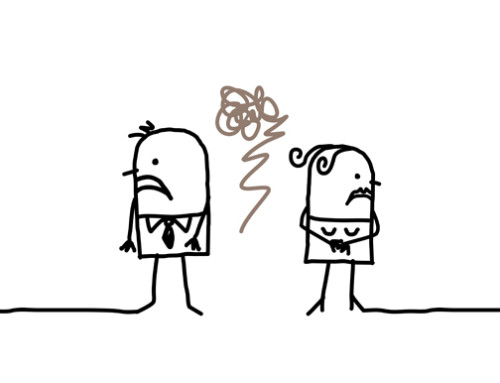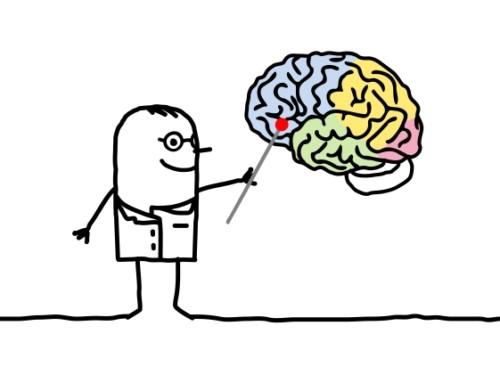In this article, I discuss the advantages of parking over thought suppression as a concentration tool.
In my work as a Calgary psychologist and a Cochrane psychologist, I sometimes have clients who have difficulty concentrating because of distracting thoughts. These thoughts may be about worries regarding some upcoming event or challenge or could involve ruminating over some event or interaction which recently occurred. In these instances, the thoughts may distract the person from being able to focus on work or school tasks or from immersing themselves in an enjoyable activity which is intended to take their mind off their problems and the negative thoughts associated with them.
There are two ways to deal with these distracting thoughts so that they become less of a distraction. Both involve attempts to taking your mind off the distracting thoughts and focusing instead on thinking about your task or enjoyable activity. One is an ineffective way and one is an effective way. In the following sections, I will discuss these two options for dealing with distracting thoughts.
Thought suppression: An ineffective way to deal with distracting thoughts
One way of dealing with distracting thoughts is an obvious way: Try not to think of the distracting thoughts. Although this is a logical way to attempt to deal with distracting thoughts, research and experience indicate that it does not work. In fact, you are even more likely to think of distracting thoughts when you try not to think about them.
This phenomenon, known as thought suppression, has been demonstrated in research studies. Participants are told that they can of anything for a short time period except for a particular stimulus such as a white bear. Participants in these studies report that the instruction not to think of a white bear leads them to think about it constantly.
Parking: An effective way to deal with distracting thoughts
Fortunately, there is an effective alternative to thought suppression in dealing with distracting thoughts known as parking the thoughts. Parking entails deciding to think about and deal with the content of the distracting thoughts at a specified time later on—preferably later that same day.
If you commit to dealing with the content of the distracting thoughts later on, the thoughts are less likely to distract you while you are engaging in a task or an enjoyable activity. It is as if the distracting thoughts will leave you alone to focus on your task or activity if they know that you will deal with them later. In contrast, the thoughts are less likely to leave you alone you engage in thought suppression. In other words, if you tell your thoughts that you refuse to deal with them at any time they will respond by insisting that you pay attention to them constantly.

How to deal with the distracting thoughts which you’ve parked
It is important to have strategies to eventually deal with the distracting thoughts which you’ve parked. Doing so will make it less likely that those thoughts will distract you going forward.
Cognitive behavioural therapy (CBT) provides a framework for strategies which can be used to deal with distracting thoughts. Behavioural strategies focus on taking action to address the content of the distracting thoughts. For example, let us suppose that you have been distracted by worrisome thoughts regarding your financial situation. Behavioural strategies to deal with these thoughts may entail making a plan to address your financial problems or meeting with a financial advisor to create such a plan.
Cognitive strategies entail identifying negatively skewed ‘hot thoughts’ which are adding to your distress and changing them to accurate and less negative balanced thoughts which lower your distress. The thought record is a fundamental CBT skill which you can learn and practice to achieve this goal. A psychologist skilled in CBT can help you with this endeavour.
In the financial example to which I just referred, a cognitive approach to dealing with distracting thoughts would entail identifying a hot thought such as “I’m not going to be able to survive financially” and changing it to a balanced thought such as, “Although I have financial difficulties to address, the evidence indicates that if I implement the plan given to me by my financial advisor I should eventually be able to return to financial stability.” As this example illustrates, doing thought records helps to change distracting hot thoughts into less distracting balanced thoughts.
Increasing your motivation to deal with unpleasant thoughts
Parking distracting thoughts allows them eventually to be dealt with through CBT strategies so that they are no longer distracting. Thought suppression, on the other hand, does not allow for the distracting thoughts to be dealt with so they continue to be a source of distraction.
Reminding yourself of this will give you the motivation to engage in an unpleasant but ultimately beneficial task—facing and dealing with unpleasant thoughts. Doing so will reduce their unpleasantness so that you can then perform tasks and engage in enjoyable activities without being distracted.
May you park your distracting thoughts instead of suppressing them,
Dr. Pat






Thank you so much for this information Dr. Pat. I think that is really useful for someone that is having a tough time with negative and repetitive thoughts.